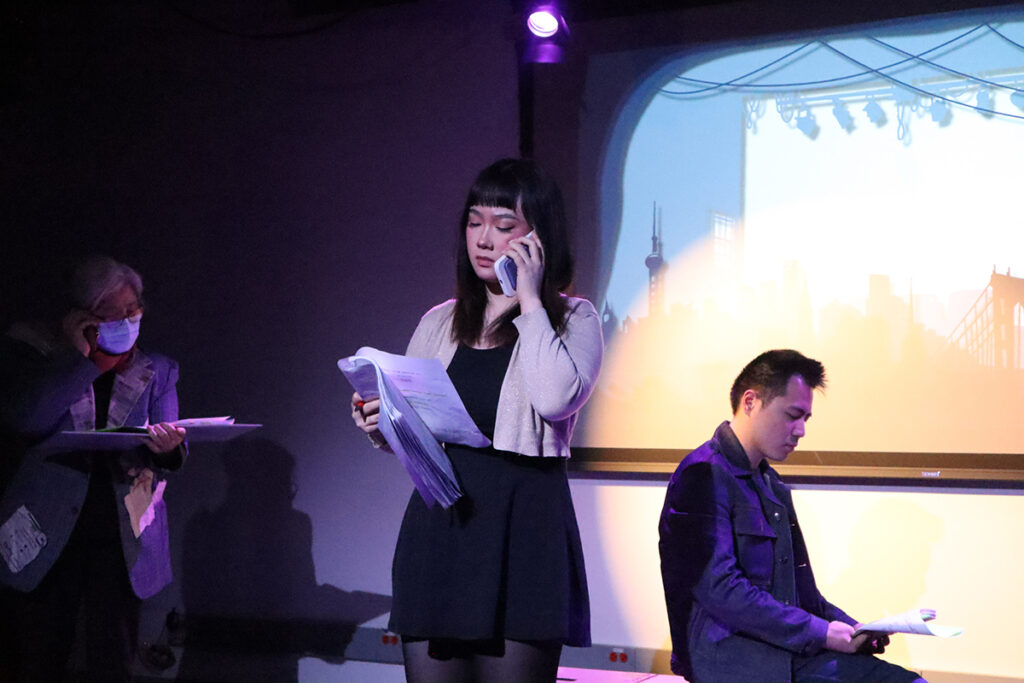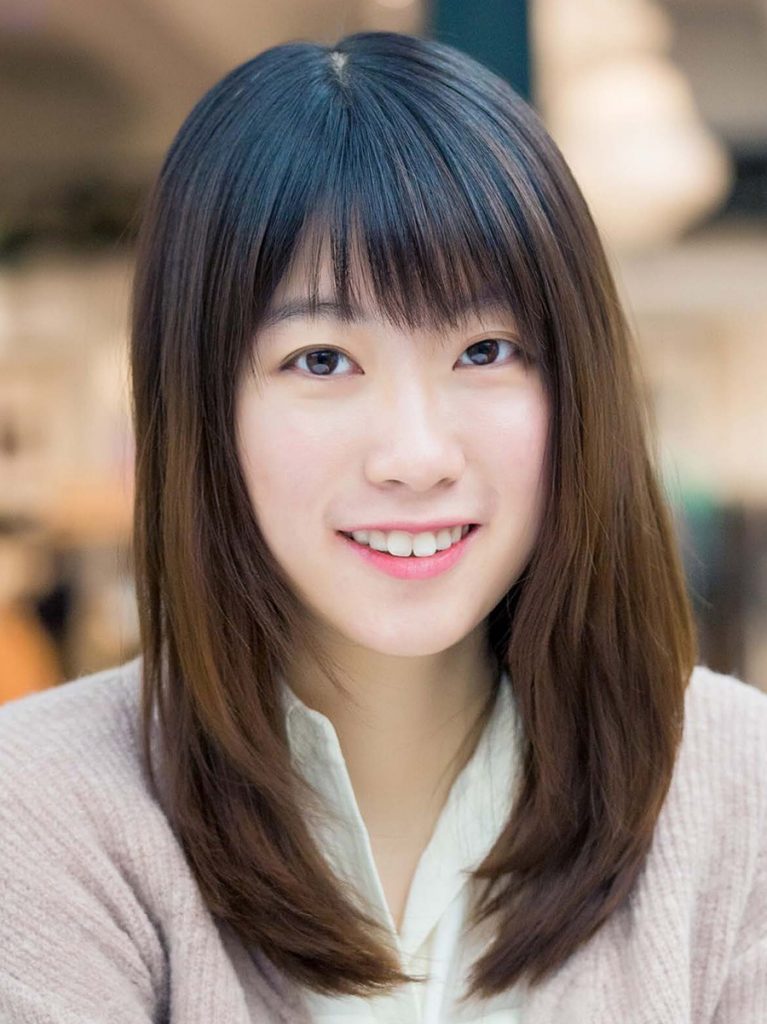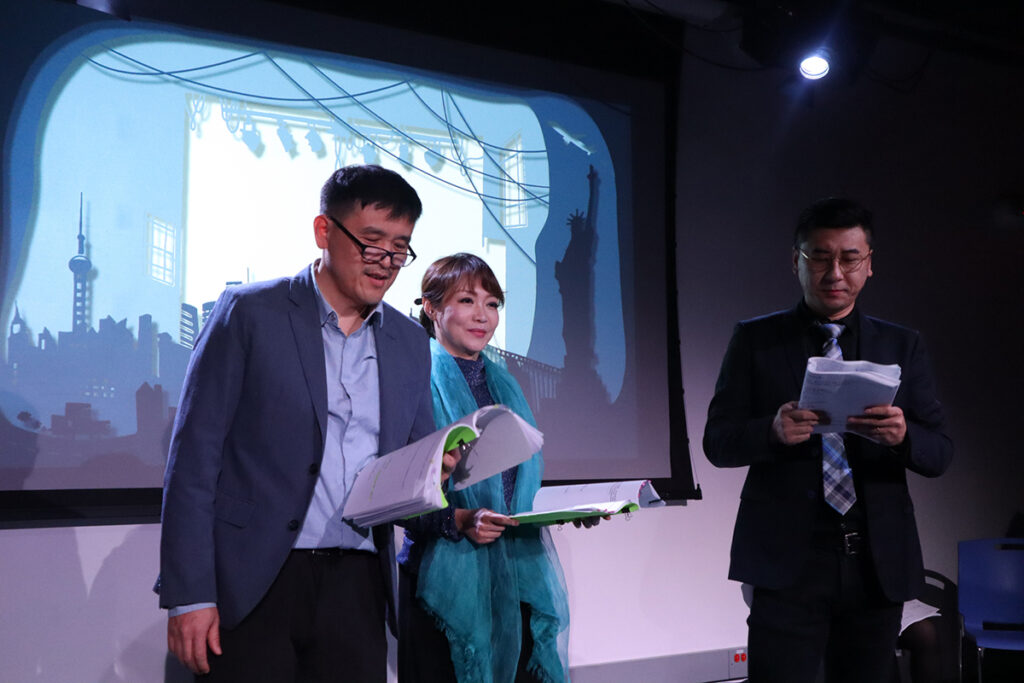CHUANG Stage Celebrating Art, Culture Through Language

What makes a story impactful and memorable?
For the production team of CHUANG Stage, the answer lies in the language and the soundscape, which enhance the experience of the story, bringing the audience closer to the action on stage.
Language sits at the forefront of The Ghost of Keelung, CHUANG Stage’s most recent production, in collaboration with Pao Arts Center and Asian American Theatre Artists of Boston (AATAB). Written by Jamie Lin and directed by Audrey Seraphin ‘15, the show is a bilingual radio play in both English and Mandarin, with sound effects produced by live foley artists. It premiered last month at Mary Soo Hoo Park on the Rose Kennedy Greenway.
Alison Yueming Qu ’20 is the co-founder of CHUANG Stage, as well as the executive director of The Ghost of Keelung.
“We are looking to foster community through language and the collaborative art of making theater,” they said of CHUANG Stage. “These language-response theater programs center AAPI artists and audiences. It is a celebration rooted in all of the artistic voices around Boston’s Asian-American theater artists.”

CHUANG Stage, founded in 2018, is rooted in the philosophies of CHUANG Lab @ Emerson, where Qu worked on Mandarin-Chinese theatre productions with other undergraduate students from China.
The Ghost of Keelung was the third installment of a three-part series titled Found in Translation, which features stories exploring the unique, individual relationships people have to language. The play features Hokkien, the indigenous language of Taiwan, in addition to Mandarin and English.
The series began in November 2021 with Chosen Family, a Vietnamese/English play with immersive elements, but the production process was cut short due to the pandemic. The second play in the series, A Deal, was staged in April 2022. Similar to both The Ghost of Keelung and Chosen Family, A Deal is a play in two languages—Mandarin and English. The company staged two versions, one in Mandarin and one in English, in two weeks. “Both of the shows [were] wildly successful and welcomed by a completely different audience. It was a wild ride experience, but very rewarding,” said Qu.
The Ghost of Keelung, by a local Taiwanese American playwright, was written primarily for audio and digital platforms to adapt to theatre during the pandemic.
“I wanted to make sure that this is a space where we can see folks proudly call themselves Taiwanese-American and with that identity, open up conversations around the city about what identity means to them and have folks talk about the histories in Taiwanese American communities and other folks learning,” Qu said.
Because it focuses on the auditory experience, sound production was a major part of this project. This was simultaneously one of the most challenging and rewarding parts of the process, according to Qu.
“We are putting together a sound experience that is battling a lot of city noises and highway noises,” Qu explained. “As you come in to see the play, you’ll be able to see the actors carry out the dialogue while two foley artists mess with the full table of materials to produce their magic into the microphone.”

Reflecting on how The Ghost of Keelung fits into the greater landscape of CHUANG Stage productions, Qu emphasized the importance of language in all productions.
“[The] term AAPI is an umbrella term which encompasses all of us. But delving into the details, all of us are so different.” They said the production team, including all of the collaborators involved, come from a variety of places, with a variety of backgrounds. “Their language journey and their relationship to their lineages and what their home country means to them is all so different.”
The Ghost of Keelung is also part of the Summer 2022 outdoor VISIONS/VOICES performance series, an ongoing collaboration with Tiger Pavilion Stage. The goal of VISIONS/VOICES is to “activate a space with spoken word, performances, music, and dance,” Qu said. “They are a series to uplift the Asian diasporic voices in Chinatown.”Qu is excited about all of the young talent they are able to showcase, both behind the scenes and onstage. There are a lot of alums involved: joining Qu and director Audrey Seraphin from Emerson are stage manager Jingwen Zhang ’22, sound designer Anna Drummond ’16, sound engineer Jon Melchiorre ’19, foley artist Brendan F. Doyle ’10, production assistant Kaye Huiyuan Hu ’23, and from Pao Arts Center, Ashley Yung ’19.
Looking ahead to future projects, Qu said they are excited to find new ways to uplift the voices of the AAPI communities in and around Boston.
“One of the reasons I continue this work is to showcase to the greater artistic community the transformative power of producing free to all programs in specific communities. It is amazing how much of a social impact that can have.”
Categories